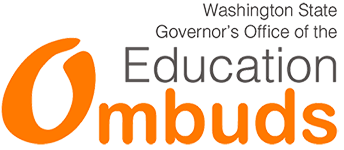Washington state public schools are doing many different things to encourage students to learn more than one language. Some schools offer dual language immersion programs, meaning that students learn in English and another language. For students who speak another language, there are opportunities to earn credits for high school graduation by taking a test (to earn what are called competency credits). Students must earn credits in world languages to graduate now and students with these skills already can make great use of meeting those requirements. School districts are also encouraged to partner, in government to government relationships with Tribes, to offer opportunities to learn indigenous Tribal languages, taught by teachers certified by the Tribes. Finally, students who have demonstrated a high level of proficiency in English and a second language can earn a Seal of Biliteracy when they graduate. Bilingualism is important and helps to preserve and explore different cultures through languages. Learn more about benefits of supporting bilingualism for your child: Speak Your Language! (available in 23 languages) https://www.k12.wa.us/student-success/access-opportunity-education/migrant-and-multilingual-education
Dual Language Immersion Programs
What they are: Programs where students receive instruction directly in two languages during the school day. The goal is for students to learn to speak, listen, read and write in both languages. Generally, students are expected to participate in a Dual Language program for several years to reach that goal. Where they are: In an increasing number of public schools in Washington state. Check out the map posted on OSPI's Dual Languages web page to find current Dual Language programs around the state: https://ospi.k12.wa.us/student-success/access-opportunity-education/migrant-and-multilingual-education/multilingual-education-program/dual-language-education-and-resources. Who can participate: Generally, dual language programs are “choice” programs. That means families that are interested can request that their child be placed in a dual language program. If there is more interest in the program than space available, districts might use a lottery system or a first come/first placed system. Check with your district's office to find out if there is a Dual Language Immersion option in your district, and what the process is for enrolling. What languages are taught: Spanish and English Dual Language programs are most common in Washington State. Some districts have Dual Language programs that combine Japanese and English; Mandarin Chinese and English; and Vietnamese and English. We can expect to see more languages added over time. Where to learn more: Find resources for Professional Learning and Curriculum and watch videos featuring some of Washington's dual language programs at OSPI's Dual Language website: https://ospi.k12.wa.us/student-success/access-opportunity-education/migrant-and-multilingual-education/multilingual-education-program/dual-language-education-and-resources.
World Language Competency Credits
School districts in Washington State can offer students the option of taking an exam that shows their ability to speak, listen, read, and write in a second language. Students can earn up to 4 high school credits for world language.
- Students can earn credits by showing what they know on the language exams, without having to take a class at school.
- For students who have maintained their ability to speak in their own, or their family's first language, they can use these experiences to earn credits toward graduation requirements.
- Students can earn credits in languages that are not offered as courses at their own high school.
To earn credits, students will need to be able to speak, listen, read and write in the language. Sometimes, students who speak a language other than English at home will need to spend some time studying the language more formally to do well on the exam. Learn More: Students/Families and Educators – find more information about the competency credit option and Sample World Language Tests at OSPI's World Languages web page, here: http://www.k12.wa.us/WorldLanguages/StudentsEarnCredits2.aspx. To find out details regarding when and where tests are offered, and whether there is a fee, contact your high school counselor, look on your district's web page, or call your district's office. Community schools and culture clubs can work with their local school districts to propose that students receive World Language Competency-based Credit based on an agreement between the district and program. Work with the district to determine whether students can be granted the credits before they take a test or class. For more information, visit OSPI's World Languages web page. http://www.k12.wa.us/WorldLanguages/CompetencyBasedCredits.aspx If your district does not yet offer a World Language Competency Credit test, talk with your school counselor and principal, and reach out to your district's administration to ask about options for making the tests available. If you need help, contact OEO. For more information, on the program visit the Office of Superintendent of Public Instruction's Road Map World Language Credit Program page. World Language Credit Brochures English (black & white) Amharic Arabic Chinese Nepali Punjabi Russian Somali Spanish Tagalog Vietnamese World Language Credits Video Clips on YouTube Courtesy of OneAmerica: Samoan Somali Spanish Tagalog Tigrinya, Vietnamese Amharic Cambodian Chinese Korean Punjabi Russian Arabic
Washington State Seal of Biliteracy
School districts in Washington can offer students the option of earning the Washington State Seal of Biliteracy. The Seal of Biliteracy recognizes public high school graduates who have attained a high level of proficiency in speaking, reading, and writing in one or more world languages in addition to English. Students can earn the Seal in different ways, including:
- Taking world language courses at school and earning strong scores on AP (Advanced Placement) or IB (International Baccalaureate) World Language exams
- Earning 4 World Language Competency-based Credits
For more details, including other ways students can demonstrate a high level of proficiency in a world language, visit OSPI's World Languages web page, here: https://ospi.k12.wa.us/student-success/resources-subject-area/world-languages/washington-state-seal-biliteracy. School districts do not have to participate, but they can. If your district does not offer the option of the Seal of Biliteracy, talk with your high school counselor and principal and reach out to your school district administrators. Educators interested in learning more about how to participate and offer the Seal of Biliteracy can find detailed information at OSPI's World Languages web page, here: https://ospi.k12.wa.us/student-success/resources-subject-area/world-languages/washington-state-seal-biliteracy.
